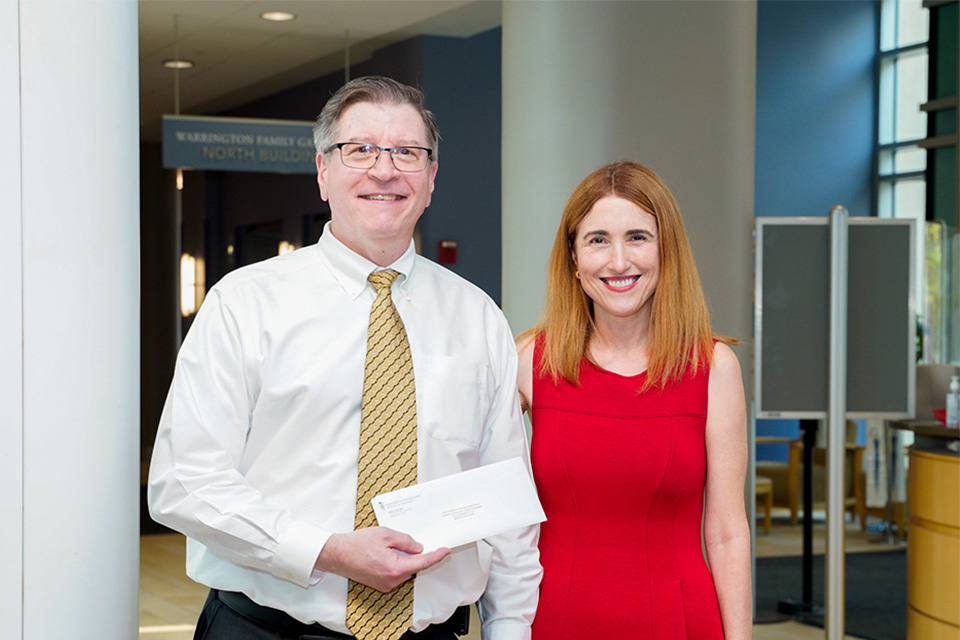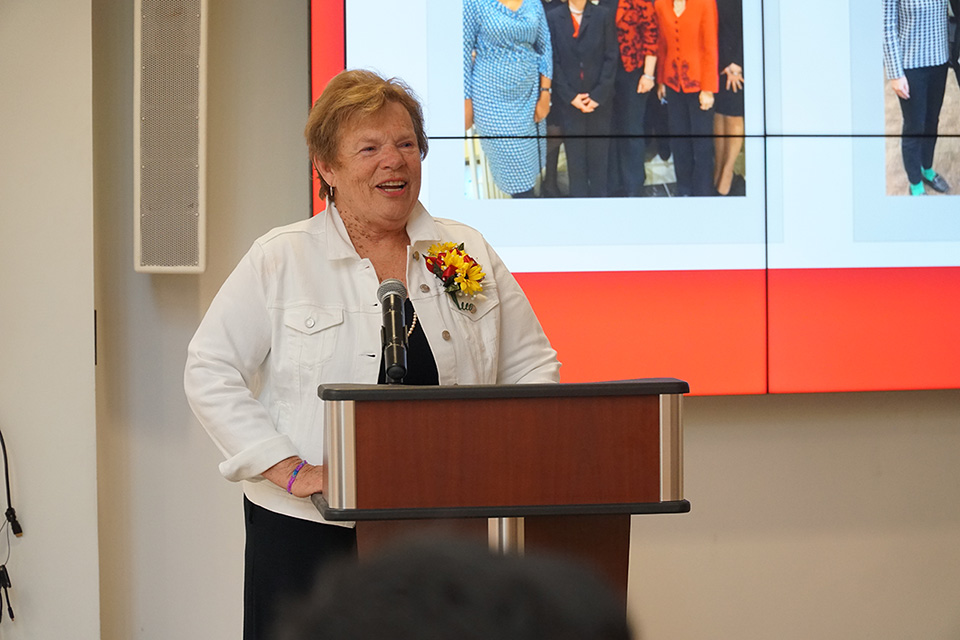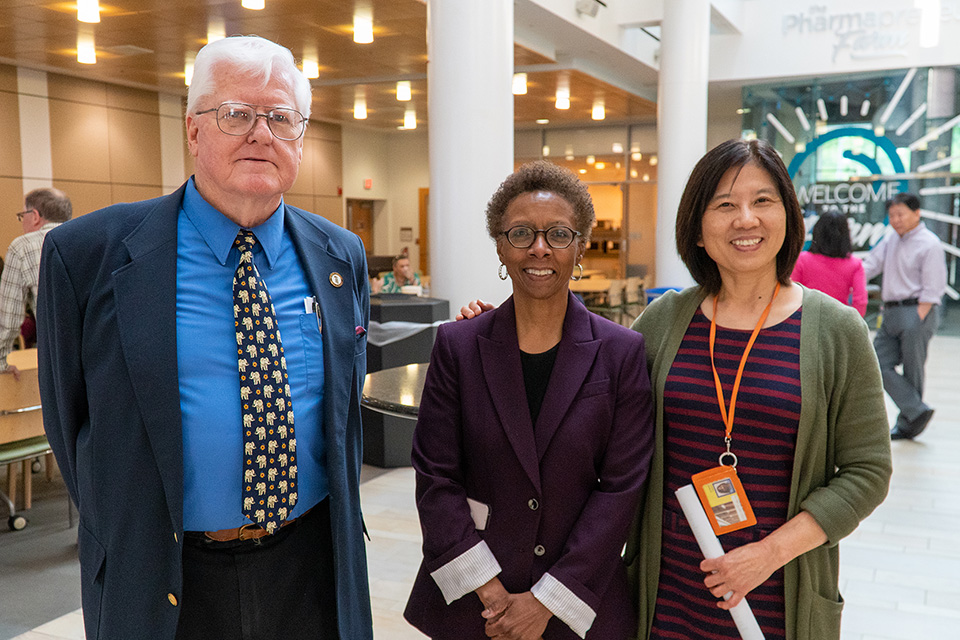Executive Director Bruce Anderson Retires from Maryland Poison Center
Anderson led the MPC since 1993.

By Andrew Tie
August 8, 2023
On June 29, the Maryland Poison Center (MPC) community came together to celebrate the tenure of Bruce Anderson, PharmD, DABAT, FACCT, and his retirement as MPC executive director and professor in the University of Maryland School of Pharmacy’s (UMSOP) Department of Practice, Sciences, and Health Outcomes Research (P-SHOR).
During Anderson’s three decades at MPC, the center transformed into the digital age and made a large impact on poison prevention and treatment in Maryland and nationally. The MPC, which celebrated its 50th anniversary last year, manages more than 37,000 cases a year and serves 4.1 million Marylanders in 21 counties and Baltimore City.
“Bruce, over your decades of service to the School and to the state, you have made a lasting impact on students, your faculty and staff colleagues, your collaborators, and most importantly on those anxious and worried parents, grandparents, caregivers, and health care professionals who call the Poison Center,” said Sarah L.J. Michel, PhD, interim dean and professor of the School said in remarks at the event. “It takes a sophisticated and dedicated leader to develop and manage the structure, professionals, and resources needed to make this kind of impact.”
Michel announced that the University of Maryland, Baltimore has granted Anderson professor emeritus status, becoming the 25th UMSOP faculty member with the honor.
“In his letter of retirement, Bruce said this was his dream job.” said Jill Morgan, PharmD, BCPS, BCPPS, FNAP, chair and professor of P-SHOR. “It’s wonderful to be able to work at your dream job for so much of your life. We were lucky to have you here to lead the Maryland Poison Center over all these years.”
Anderson graduated from the Philadelphia College of Pharmacy and Science with his PharmD in 1990 and completed a clinical toxicology fellowship at the University of California, San Diego Medical Center. He then worked as the assistant director of the Florida Poison Center, before joining the MPC as assistant director in 1993. He served as acting director in 1994 and became the director in 1995.
“When you talk to staff at the poison center, you find out many of them have been here for a long time,” Anderson said. “I’ve been here for 30 years, and it is an amazing job because you get to do so many kinds of things. At our core, pharmacists are problem solvers, and the poison center presents plenty of opportunities to deal with problems.”
Accomplishments of MPC under his leadership include:
- Oversight of a 24/7 operation through many crises and challenges
- Secured more than $10 million in grants and contracts for the poison center from the Maryland Department of Health, US Health Resources and Services Administration, and private entities like Baxter
- Led the MPC through multiple physical relocations and technology upgrades, which included a shift to electronic data collection in 1996
- Publication and presentation record on topics ranging from LSD exposures to acetaminophen overdoses
- Represented the MPC and the School of Pharmacy in countless media interviews on public health topics such as the anthrax attacks in 2001, the abuse of synthetic marijuana and bath salts in 2010, new designed laundry packets being ingested by children in 2015, vaping use-associated lung injury in 2019, and chloroquine and ivermectin exposures during the COVID-19 pandemic
Going forward, the Maryland Poison Center will be co-led by Jimmy Leonard, PharmD, DABAT, and Angel Bivens, MBA, CSPI. Leonard, an associate professor of P-SHOR, is now director of clinical operations, and Bivens is the director of operations and public education.



